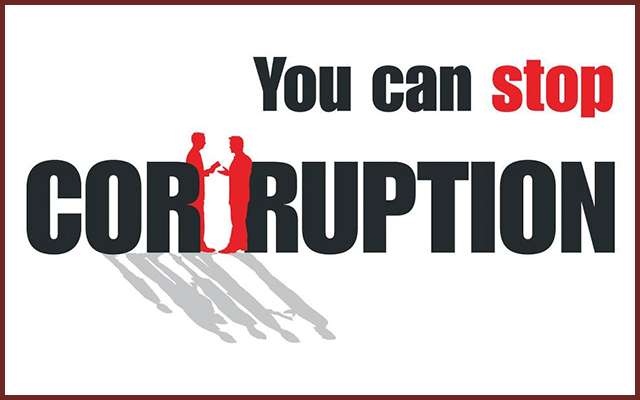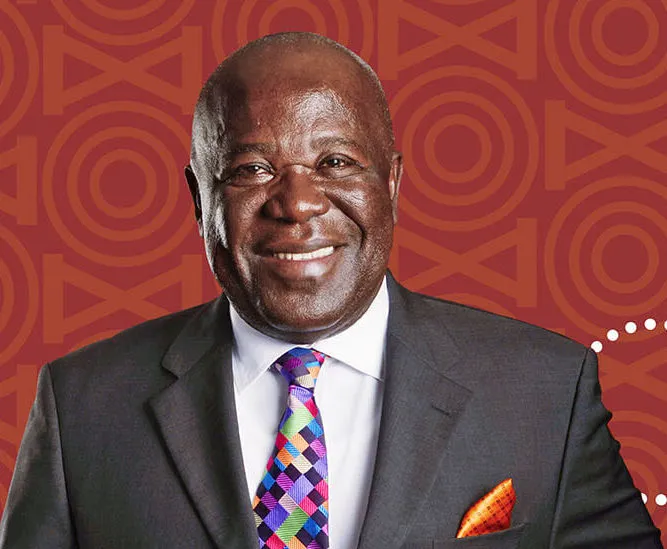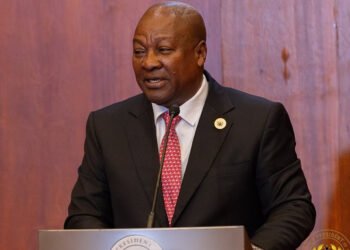Sam Esson Jonah, an astute Businessman and the Chancellor of the University of Cape Coast has stated that Ghana faces significant governance challenges rooted in a troubling mindset.
According to him, Parliament’s current crisis, resulting in sittings indefinitely suspended, reveals a deeper erosion of integrity and patriotism.
Sam Jonah noted that when public office prioritizes personal wealth over service, Ghana’s sovereignty is at risk.
He lamented that corruption is so entrenched that many view it as cultural, with non-corruption seen as abnormal.
Sam Jonah noted that an academic who entered politics with good intentions was labeled “‘unbusinesslike,’ meaning ‘non-corrupt‘”.
He indicated that today, being a “businesslike” politician often equates to prioritizing self-interest over public service, marking a stark decline from the altruism of Ghana’s early independence.
“Where are the Kwame Nkrumah’s [Ghana]? And where are the likes of Mensah Sarbah, who when he was going to be rewarded monetarily for his service to the Aborigines Rights Protection Society, declined accepting the cash, saying serving his people was a great reward by itself.
“Rather than emulate the selfless spirit of our heroes, governance is replete with scandals, which get worse by the day; and governments do not only spare the corrupt within their own bracket, we hardly hear of disciplinary action against public officials traceable to executive graft, corruption, self -aggrandizement, or unexplained wealth”.
Sam Esson Jonah
Sam Jonah further indicated that when investigating former officials, government officials often hold back, fearing future retaliation.
As such, he indicated that this accountability failure is clearer in the environmental destruction from illegal mining, which governments have ignored, especially in election years.
Accordingly, the Businessman suggested that Ghana needs a mindset shift that values community, citizenship, and innovation. “…our education system must move beyond rote learning to foster problem-solving and creativity”.
He pointed out that the government’s recent move to institutionalize the purchase of past exam papers reinforces rote learning, lowering educational standards.
As such, he lamented that the government is training future leaders to rely on shortcuts and fear failure, rather than embracing real learning and innovation.
End to Corruption and Environmental Neglect Urged
Furthermore, Sam Jonah indicated that the tolerance for corruption and environmental harm must end.
He also pointed out that Ghana needs integrity in public office, noting that leaders must see leadership as a duty to protect the country’s future, not a path to personal gain.

Sam Jonah indicated that real change requires a mindset shift toward discipline and patriotism as true progress begins not with policies, but with a transformation in citizens’collective mindset.
He also advocated for an education that brings progress and economic development rather than mere certification.
“Education plays a critical role in shaping minds. Nations that have successfully transformed their populations have made values-based education a priority.
“Part of our problem as a country has been an archaic system where going to school per se is mistaken for education. Year on year we have produced graduates that have next to nothing to show beyond certificates. It has been said that education is what remains after one has forgotten everything learned at school”.
Sam Esson Jonah
He further lamented the fact that Ghana’s education system prioritizes rote learning over critical thinking, leaving employers to teach graduates real-world skills.
Sam Jonah emphasized that the recent focus on the provision of past exam papers to students by the government reinforces memorization, stifling innovation.
Accordingly, he asserted that to compete globally, Ghana needs schools that inspire creativity and resilience, preparing students as problem-solvers, not just grade-seekers.
Sam Jonah also expressed satisfaction that the new primary curriculum focuses on practical skills, describing it as a positive step.
According to him, Ghana’s social challenges arise from a decline in values, not intellect.
As such, he stressed that a shift toward innovation and integrity is essential for the country’s future. “Our educational system must be the first line of defense against our prevailing moral decay”.
READ ALSO: Australia Voices Concerns Over Alleged Sikh Activist Targeting






















